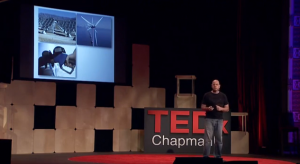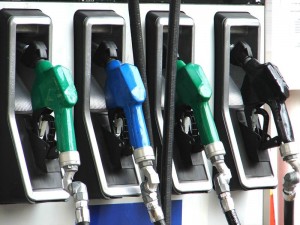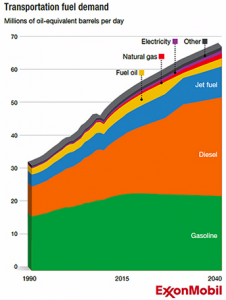11 item(s) were returned.
Member
U.S. House of Representatives
Along with my colleagues Reps. Tom Cole (R-OK) and Matt Salmon (R-AZ), I introduced the Fuel Choice for American Prosperity and Security Act (FCAPS, or H.R. 5107), a bill to promote fuel competition in our transportation sector. In particular, FCAPS aims to: Improve energy and national security by reducing the strategic importance of oil; Save consumers money at the pump by opening vehicles to fuel competition; Spur economic growth by allowing industry to capitalize on more of America’s natural resources; and Reduce the financial burden for automakers and consumers of meeting corporate average fuel economy (CAFE) regulations. Opening cars to… [more]
View InsightCo-Founder
Fuel Freedom Foundation
The lack of alternative energy sources to fuel our vehicles and replace expensive oil, jeopardizes U.S. national security, forces Americans to pay more at the pump, and greatly represses our ability to reduce pollution and address climate change concerns. In my state of California, 74% of all emissions – including CO2, toxic pollutants, ozone forming emissions and more – come from petroleum. Oil accounts for 65% of California’s GHG emissions, compared to 33% from natural gas, and less than 2% from coal. Meanwhile, each year, the U.S. spends more than $600 billion to buy oil and oil products, which is… [more]
View InsightVisiting Fellow
Hudson Institute
A number of scholars, from the left and the right have floated versions of a carbon tax. Henry Paulson has also weighed in, favoring a tax. In theory, a uniform comprehensive carbon tax enforced among all major global emitters might have great advantages. Such a tax, if linked to a stringent accounting system, could be more transparent than any other approach to greenhouse gas control. In contrast to command-and-control schemes, a tax would target abatement resources to where they would be most cost-effective. A tax, unlike the 2009 cap-and-trade bill, would make it harder for proponents to falsely promise both… [more]
View InsightA report, “Fuel Choice for American Prosperity,” recently published by the United States Energy Security Council (USESC), a group within the Institute for the Analysis of Global Security (IAGS), identifies challenges facing the United States’ pursuit of energy security. Despite oil imports expected to fall to their lowest level since 1987 (EIA), the total amount of money the U.S. spends on oil imports has increased. If energy security is defined as “reliable supply at an affordable price,” as the report’s authors define, the U.S. has improved the former, but failed to impact global oil prices, which have risen more than… [more]
View InsightAdvisor
Fuel Freedom Foundation
The recent projections for future energy consumption from Exxon Mobil’s report, “Outlook for Energy,” and the EIA’s “Annual Energy Outlook, 2013” essentially said the same thing concerning the potential for natural gas and its derivative methanol: Natural gas use now is only about 1 percent of the total fuel used in vehicles, and by 2040, it will only rise to 4 percent. This increase will take place in the trucking sector and liquefied natural gas (LNG). Owners of automobiles will not rush to natural gas, because of a lack of pumping stations and the low density of natural gas. Adam… [more]
View InsightThe Environmental Protection Agency (EPA) and the National Highway Transport Safety Administration (NHTSA) have released new rules for a corporate average fuel economy (CAFE) standard that will increase fuel economy to the equivalent of 54.5 miles per gallon and reduce vehicle greenhouse gas emissions to 163 grams of carbon dioxide per mile by 2025. The EPA is establishing national GHG emissions standards under the Clean Air Act, and the NHTSA is establishing Corporate Average Fuel Economy (CAFE) standards under the Energy Policy and Conservation Act. Both programs will give flexibility to manufacturers to achieve compliance, including the use of a credit… [more]
View InsightOn February 28th and 29th a federal appeals court in Washington, DC will hear oral arguments in Coalition for Responsible Regulation v. EPA, an aggregation of lawsuits challenging U.S. EPA’s authority to regulate climate change pollutants. The suits have been brought by industry and free-market groups seeking to overturn EPA’s greenhouse gas endangerment finding, clean car standards crafted under the Clean Air Act, and efforts to reduce industrial emissions. EPA’s endangerment finding for climate change pollutants, required by the Supreme Court case Massachusetts v. EPA, established that “greenhouse gases … in the atmosphere threaten the public health and welfare of… [more]
View InsightJ.C. Ward Jr. Professor of Nuclear Energy Engineering
Cornell University
The President said in his State of the Union Address, “And nowhere is the promise of innovation greater than in American-made energy.” He then talked about opening federal land for oil and gas exploration, implied that relying on foreign oil is not a good thing, and stated, “This country needs an all-out, all-of-the-above strategy that develops every available source of American energy a strategy that’s cleaner, cheaper, and full of new jobs.” Considering the President’s all-of-the-above platform, and the goals implicit in it, we’d be wise to evaluate our national relationship to oil. The U.S. currently produces around 7.6 million… [more]
View InsightProfessor of Physics
City College of the City University of New York
Despite aggressive requests from the Obama Administration and the Department of Energy’s Office of Science, the House in the most recent appropriations debate made significant efforts to reduce funding for climate-related science. The Senate prevailed in the subsequent negotiations, and nearly all Office of Science programs received modest funding increases. Although it lost its appropriations battle, the House’s efforts to trim the Office of Science’s funding demonstrate its strong skepticism about climate science. Further reflecting its attitudes, the House defunded enforcement of standards for more efficient light bulbs, publicly challenged the validity of climate science, relentlessly pushed the Keystone XL … [more]
View InsightBetween the Solyndra scandal, the disaster at the Fukushima I Nuclear Power Plant, the deliberation over the Keystone XL pipeline, President Obama’s aggressive new CAFE Standards, protests over lighting standards, EPA’s MACT rules, and more, 2011 proved to be a controversial year for energy and energy policy, even without major energy legislation.
View Insight





